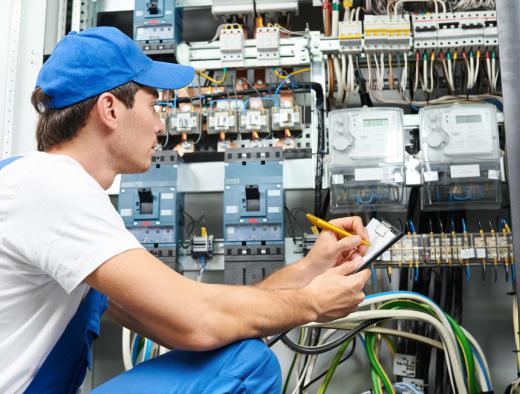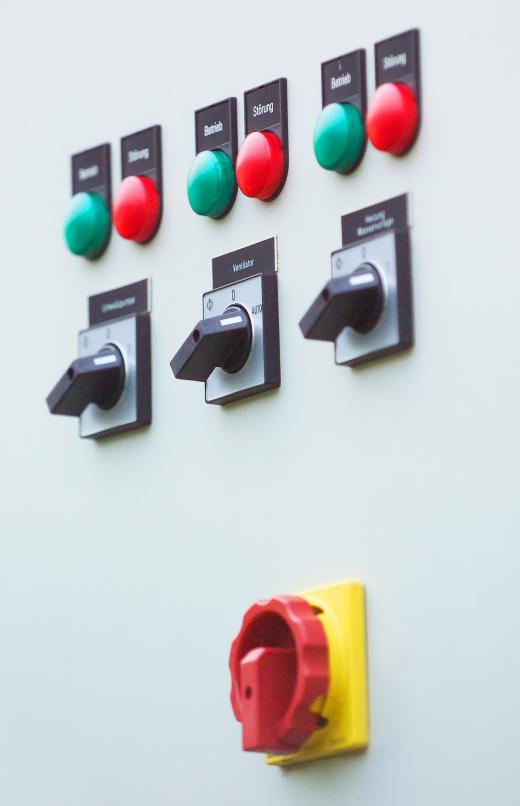An electrical inspection is an inspection, which will help ensure that all electrical systems and wires in a building meet legal safety standards. There is a national electric code, which many electrical inspectors will use when determining whether a certain electrical installation is acceptable. In some cases, an electrical inspection, or even multiple inspections, will be included with an electric permit, often required by local governments.
Most electrical inspections are done by the local government. For those who want to make sure they can pass the inspection before the official inspector makes his rounds, a private inspector may be hired. This person will advise the project manager, or the owner, of any situations that require improvement before the official inspection is to take place.

There are three main types of inspections that happen during the installation of an electrical system. The first is known as the "rough in" electrical inspection. During this time, all the wires, conduits and boxes will be inspected. The second inspection is the service inspection. While there are many things that must happen to pass this inspection, making sure the service panel is installed and grounded in a proper fashion are two of the most important factors. The third inspection is the final inspection. At this point, all breakers and final touches will be installed, and the electrical system should be fully functional.

In many cases, before the city will even consider passing an electrical inspection, the work must be done by a licensed electrician. Many municipalities hold the test for electricians several times a year. Some cities may accept a certificate from another municipality or statewide organization. Others will insist that the electrician is certified locally, by the city in which he or she is doing business. This is to help ensure that quality work is being done, which will aid in the inspection process. The exception to this rule is in the case where the owner of an occupied structure does the work by himself or herself. This is, however, not something many people are experienced enough to do.

An electrical inspection will be required not only when a new building is constructed, but in several other cases as well. Adding a new addition on to a building that will be serviced by electricity is another time when an inspection will need to take place. Some cities will also require an inspection if the electricity has been totally cut off from the building for a certain period of time.
